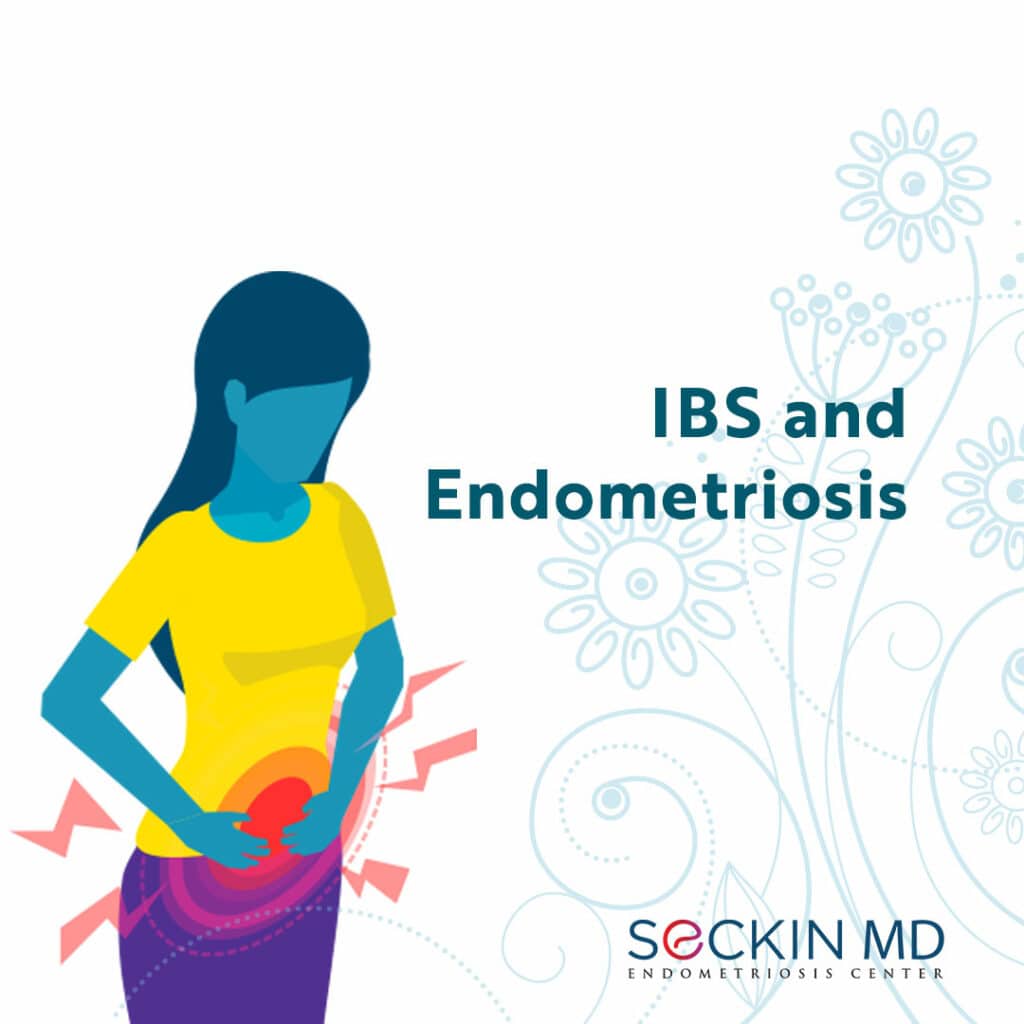IBS and Endometriosis

Irritable bowel syndrome (IBS) is a common gastrointestinal (GI) disorder. It leads to stomach pain, bloating, gas, cramps, diarrhea, and constipation. IBS occurs in 10% to 15% of adults in the US and women are twice as likely to have it than men. Symptoms of IBS and endometriosis often overlap making the diagnosis of the latter difficult. Particularly, bowel endometriosis can lead to abdominal spasms, abdominal and rectal pain, constipation, diarrhea, and abdominal gas.
As symptoms of IBS and endometriosis overlap, patients often first seek out care from a gastroenterologist. They often attribute the problem to IBS or less commonly small intestinal bacterial overgrowth (SIBO), colonic inertia, or Crohn’s disease. This can lead to long delays in diagnosis.
In most stages of endometriosis, a colonoscopy will most commonly be normal as the disease has not completely infiltrated through the bowel wall.
Does the gut microbiota have a role in this?
There seems to be no direct link between changes in gut microbiota (the collection of microbes living in the gut) and endometriosis. However, a recent study showed that there is less microbial diversity in women with endometriosis than in healthy controls.
Another study showed that there seem to be more bacteria such as Proteobacteria, Enterobacteriaceae, Streptococcus, and Escherichia coli bacteria in the gut of patients with endometriosis. Interestingly, the levels of these bacteria also change in IBS.
How common is IBS in women with endometriosis?
In a study, more than 90% of endometriosis patients reported experiencing GI symptoms. A systematic review and meta-analysis of 11 studies showed that women with endometriosis had a two-fold increase in IBS risk compared to those without endometriosis.
Another recent systematic review showed that the risk of IBS in women with endometriosis ranged between 10.6% and 52%. In this study, IBS symptoms were three times more common in women with endometriosis.
How can doctors confirm endometriosis in the case of IBS-like symptoms?
It is difficult to differentiate endometriosis and IBS due to a significant overlap of symptoms. Most gastrointestinal and primary care doctors do not ask the right questions, according to Dr. Seckin.
An appropriate endometriosis evaluation will include questions regarding ovulation and abnormal bleeding as well as routine questions regarding gastrointestinal issues. Questions related to whether the symptoms occur or worsen during periods are crucial, as are questions related to sex and laterality. Endometriosis often results in systemic inflammation that will affect the gut and in more severe cases, can affect and/or invade the recto-vaginal area. So an appropriate pelvic examination must is very important.
Many GI doctors rely on colonoscopy and endoscopy to diagnose conditions such as inflammatory bowel disease (IBD). However, these techniques look inside the bowel and not outside which is what laparoscopy does. Laparoscopic deep excision surgery is necessary to look outside the bowels where endometriosis lesions are located. In fact, it is the only way to confirm endometriosis.
What is treatment like?
Endometriosis patients who present with IBS-like symptoms can try conservative measures first. These include a food diary, dietary changes, and medical management. Medical management does include a trial of oral birth control pills if endometriosis is suspected. It is only when medical management fails does one have to consider surgery, according to Dr. Seckin. Laparoscopic deep excision surgery together with cold excision and Aqua Blue Contrast(TM) can identify and excise all endometriosis lesions. This is very important as this disease is progressive in nature.
Complex cases may involve having to separate the intestines, remove the lesions, and restore damaged anatomy. In advanced cases, endometriosis lesions can invade through the bowel wall and it becomes necessary to remove a portion of the bowel. The bowels need to be properly put together to avoid leaking and infection, and restore full function. This is only possible in the hands of an experienced surgeon and a multidisciplinary team.
What dietary changes should I make?
If you have endometriosis, you can switch to an anti-inflammatory diet to reduce symptom flares or gut-related symptoms.
For many, avoiding gluten can help since research suggests that up to 75% of endometriosis patients can be gluten-intolerant. Research has also shown that a low FODMAP (fermentable oligosaccharides, disaccharides, monosaccharides, and polyols) diet can relieve symptoms of bowel dysfunction in endometriosis patients. A low FODMAP diet that includes lactose-free milk, tofu, tempeh, alfalfa bean sprouts, lettuce, tomato, oats, almonds, rice, and quinoa, is low in carbohydrates and gluten, which helps in reducing inflammation.
Keep in mind that not every individual with endometriosis should follow the same diet and keeping a food diary can often help tailor dietary changes to the individual.
Did you receive a misdiagnosis with IBS even though you actually had endometriosis? Please share your story with others by leaving a comment on our post on Facebook or Instagram.
Get a Second Opinion
Our endometriosis specialists are dedicated to providing patients with expert care. Whether you have been diagnosed or are looking to find a doctor, they are ready to help.Our office is located on 872 Fifth Avenue New York, NY 10065.
You may call us at (646) 960-3080 or have your case reviewed by clicking here.